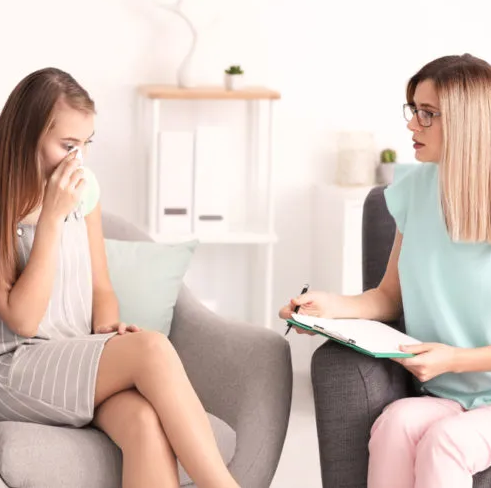Psychiatry Consultation in Kochi
Search and Compare the Best Clinics and Doctors at the Lowest Prices for Psychiatry Consultation in Kochi

Find the best clinics for Psychiatry Consultation in Kochi
No pricing info available
Thailand offers the best prices Worldwide
Price: $ 28
Medstar Clinics, located in Kuttisahib Rd, Kochi, India offers patients Psychiatry Consultation procedures among its total of 44 available procedures, across 11 different specialties. Currently, there's no pricing information for Psychiatry Consultation procedures at Medstar Clinics, as all prices are available on request only. All procedures and treatments are undertaken by just a small team of specialists, with 3 in total at the Clinic, and they are not accredited by any recognized accreditations institutes
WHY US?
At Medijump, we're making medical easy. You can search, compare, discuss, and book your medical all in one place. We open the door to the best medical providers worldwide, saving you time and energy along the way, and it's all for FREE, no hidden fees, and no price markups guaranteed. So what are you waiting for?

Free

Best Price

Widest Selection

Risk-Free
What you need to know about Psychiatry Consultation in Kochi

A psychiatry consultation involves a conversation between you and a psychiatrist to find out what might be wrong and to come up with a management or treatment plan to help with the problem.
Psychiatry is a medical field that deals with the diagnosis, treatment, and prevention of mental health conditions. A doctor who specializes in psychiatry is called a psychiatrist. There are several reasons why someone chooses to have or is referred by their GP to see and consult a psychiatrist. These include:
-
Worry, fear, and anxiety
-
Problems adjusting after experiencing stress or major life changes
-
Depressed
-
Bad/low mood that does not go away
-
Thoughts of hurting other people
-
Suicidal thinking
-
Hurting themselves on purpose
-
Being unable to sleep, relax, or wind down
-
Having too much energy
-
Obsessional thinking
-
Constant negative thinking
-
Feeling jumpy or on edge
-
Feeling like people want to harm you or after you
-
Delusions (fixed beliefs with no basis in reality)
-
Hallucinations (seeing or hearing things that are not actually there)
-
Memory problems
-
Disjointed, rushing thoughts
-
Hyperactivity, poor concentration and attention
-
Agitation, violence, or emotional outbursts
-
Out of control drug or alcohol use
-
Problem gaming, gambling, or other addictive behaviors
-
Insomnia or other sleep problems
-
Problems around body image, dieting or eating
-
Conditions that begins in childhood, such as childhood anxiety, intellectual disability, and autism.
Mental health conditions that may be diagnosed and treated in psychiatry consultations are as follows:
-
Anxiety
-
Obsessive-compulsive disorder (OCD)
-
Depression and bipolar disorder
-
Phobias
-
Personality disorders
-
Paranoia and schizophrenia
-
Dementia and Alzheimer’s disease
-
Sleep disorders, such as insomnia
-
Eating disorders, such as bulimia and anorexia
-
Addictions, such as alcohol and drug misuse.
Psychiatry consultation is usually needed for people with long-term, terminal, or painful physical health conditions to provide psychological support as well.
What does a Psychiatry Consultation Procedure Involve?
During your first psychiatry consultation, your psychiatrist will do an initial assessment. The first consultation is usually the longest as it should give your psychiatrist time to listen to you and hear your whole story.
Be prepared to answer lots of questions. Your psychiatrist will ask you about the problem that brought you to see them and general questions about your life and thoughts. It might be hard to answer open-ended questions, but remember that there is no wrong way to answer the questions and your psychiatrist will guide you through the interview. To get the most out of your psychiatry consultation, you should come prepared so you can be specific. If you feel comfortable, you can also share the goals you would like to achieve from the treatment. All the information you give can help your psychiatrist develop an individualized treatment plan.
You will also be asked about your medical and psychiatric history, both personal and family. Therefore, make sure that you prepare the following:
-
A list of medications you are taking
-
A list of any and all psychiatric medications you may have tried in the past and how long you took them for
-
Your medical concerns and any diagnoses
-
Family history about a psychiatric problem, if there are any.
Your psychiatrist may also want to speak with members of your family and speak with other health professionals.
Next, your psychiatrist may take your blood pressure and do a basic physical checkup, including taking your temperature and weight. In some cases, other testing or scans may be ordered.
Based on the information your psychiatrist gathered and the test results, they will make a full diagnosis. Then, the next step is to create a treatment plan. A treatment plan consists of a combination of therapies that suit your needs, personal preferences, age, and family situation. Your psychiatrist may prescribe medication or suggest other treatments, such as cognitive-behavioral therapy (CBT) or counseling.
Your psychiatrist may continue to manage your treatment or you may be referred to see other health professionals, such as a psychologist.
Your next psychiatry consultation will typically be shorter than the first. In general, you will discuss how the medicines or treatments are working, and give a concise overview of how you are doing. Your psychiatrist or other healthcare professional will decide whether your medications or treatment need to be adjusted or not.
How Long Should I Stay in Kochi for a Psychiatry Consultation Procedure?
You can leave the hospital or clinic as soon as your psychiatry consultation is finished. While your length of stay will depend on your circumstances, you usually do not have to stay in Kochi any longer than you want to.
What's the Recovery Time for Psychiatry Consultation Procedures in Kochi?
No recovery time is needed after the psychiatry consultation itself. You should be allowed to go back to your normal activities, including work and exercise, immediately after your treatment. Note that it is normal to feel emotionally drained or overwhelmed after a psychiatry consultation. Therefore, it is okay to rest after your consultation and return to your daily activities when you feel ready.
Your recovery will start after treatment, which will depend on your specific condition and the type of treatment you undergo.
What sort of Aftercare is Required for Psychiatry Consultation Procedures in Kochi?
If your psychiatrist prescribes medications, make sure to take it as directed. You will probably need to see your psychiatrist regularly if your psychiatrist is providing you with psychological treatments. In addition, you may be suggested to go back to your GP for a regular checkup. They may also refer you to see a psychologist, social worker, or other therapists.
In most cases, you may need to attend more than one psychiatrist consultation. However, if your GP refers you to attend a psychiatry consultation only for a management plan or second opinion, you may not need to go back for another consultation.
What's the Success Rate of Psychiatry Consultation Procedures in Kochi?
Psychiatry consultation is the first step of treatment for mental health conditions. Consultations have high success rates in diagnosing your condition and finding out the reason for your problems. There is typically no risks involved in psychiatric consultations. Discussing your past, problems, family history, and treatment goals can bring up sensitive issues that may cause you to feel a lot of emotions.
Are there Alternatives to Psychiatry Consultation Procedures in Kochi?
You may be able to see other mental health professionals, such as a clinical psychologist, mental health counselor, clinical social worker, or other therapists. They usually provide therapy. However, they cannot prescribe medication.
What Should You Expect Before and After the Procedure
Before psychiatry consultation, you may experience symptoms that can interfere with your ability to function in work, school, or social environment, but you do not know the reason or the condition that you have. After the consultation, your psychiatrist should be able to make a diagnosis and help you with creating a treatment plan.
Whilst the information presented here has been accurately sourced and verified by a medical professional for its accuracy, it is still advised to consult with your doctor before pursuing a medical treatment at one of the listed medical providers
No Time?
Tell us what you're looking for and we'll reachout to the top clinics all at once
Enquire Now

Popular Procedures in Kochi
Price on Request

Prices Start From $20

Prices Start From $28

Prices Start From $32

Recommended Medical Centers in Kochi for Psychiatry Consultation

- Interpreter services
- Translation service
- Religious facilities
- Medical records transfer
- Medical travel insurance
- Health insurance coordination
- TV in the room
- Safe in the room
- Phone in the room
- Private rooms for patients available

- Interpreter services
- Translation service
- Religious facilities
- Medical records transfer
- Medical travel insurance
- Health insurance coordination
- TV in the room
- Safe in the room
- Phone in the room
- Private rooms for patients available

- Interpreter services
- Translation service
- Religious facilities
- Medical records transfer
- Medical travel insurance
- Health insurance coordination
- TV in the room
- Safe in the room
- Phone in the room
- Private rooms for patients available
Psychiatry Consultation in and around Kochi
Popular Searches
- Plastic Surgery in Thailand
- Dental Implants in Thailand
- Hair Transplant in Thailand
- Breast Augmentation Thailand
- Gastric Sleeve in Thailand
- Gender Reassignment Surgery in Thailand
- Laser Hair Removal in Bangkok
- Botox in Bangkok
- Dermatology in Bangkok
- Breast Augmentation in Bangkok
- Coolsculpting in Bangkok
- Veneers in Turkey
- Hair Transplant in Turkey
- Rhinoplasty in Turkey
- Stem Cell Therapy in Mexico
- Rhinoplasty in Mexico
- Liposuction in Mexico
- Coolsculpting in Tijuana
- Rhinoplasty in Korea
- Scar Removal in Korea
- Gastric Sleeve in Turkey
- Bone Marrow Transplant in India
- Invisalign in Malaysia
- Plastic Surgery in the Dominican Republic
- Tummy Tuck in the Dominican Republic
- Plastic and Cosmetic Surgery in Poland
- Rhinoplasty in Poland
- Hair Implant in Poland
- Dental Implants in Poland
- IVF in Turkey